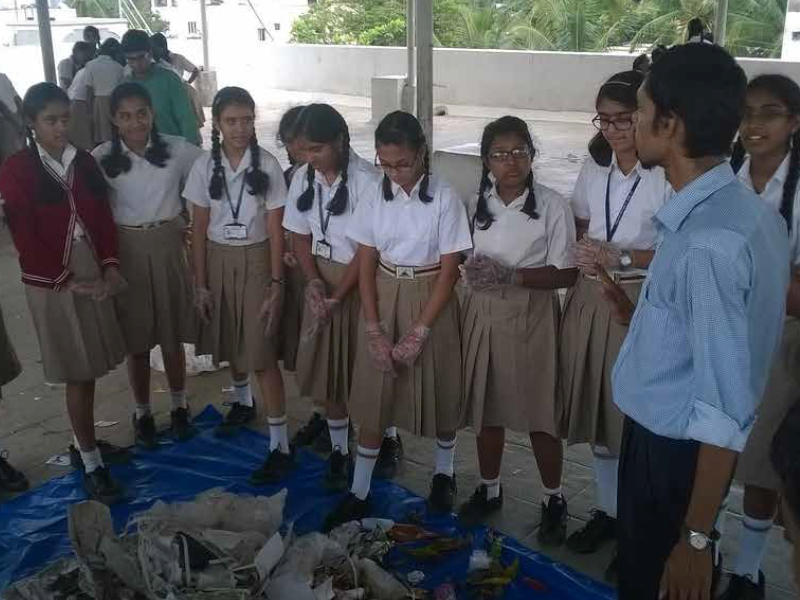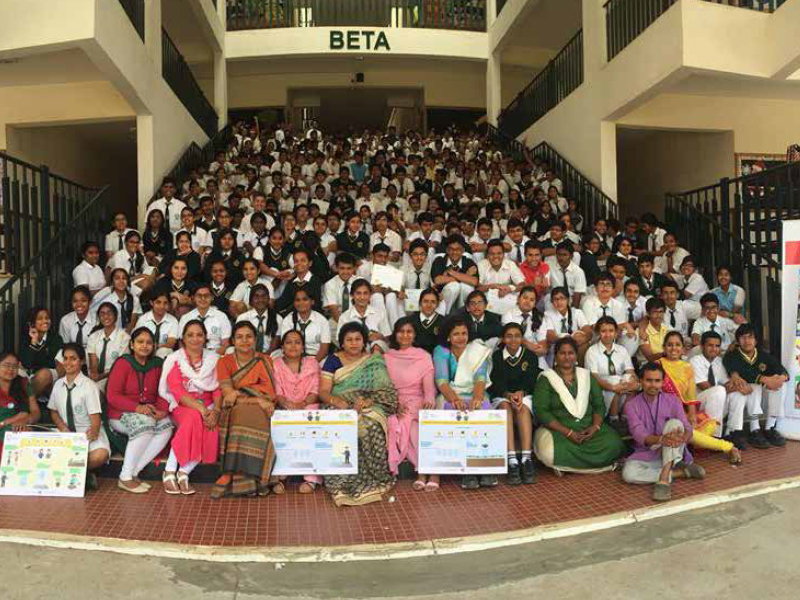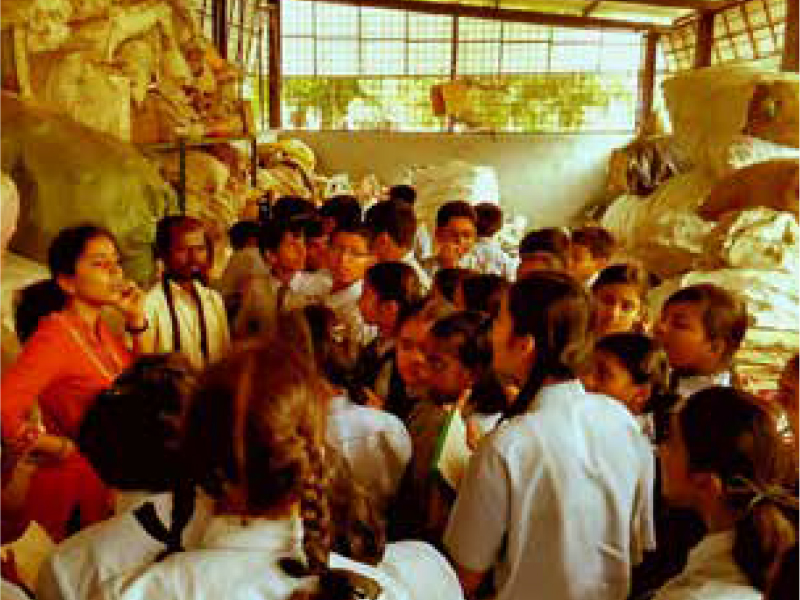Educate
Central to WeRise’s ethos is the syncretic union of both social and environmental sustainability. Sustainable development is a process which leads to a better quality of life while reducing the impact on the environment. Dealing with mounting environmental challenges will require creative technologies and approaches. WeRise believes that these innovations will increasingly come from the youth.
Green Hackathon 2016
themeBlackspot Reduction, Energy Management, Water Management and Sanitation
Number of Schools35 Schools / 140 Participants
WorkshopsCoding and Trigger Mapping, Empathy and Change-making
Way ForwardMentorship and guidance by knowledge partners & Implantation of solutions at a city level
Impact35 Civic & Environmental Innovative Solutions & Built awareness to over 35000 students across schools and their families



Green Hackathon 2017
themeCivic & Environmental hacks
Number of Schools80 Schools / 500 Participants
WorkshopsSocial Entrepreneurship Empathy for Social Change Design thinking
Way ForwardMentorship and guidance by knowledge partners Implantation of solutions at a city level
Impact80 Civic & Environmental solutions Built awareness to over 80000 students across schools and their families 16



Green Hackathon 2018
themeGreen Hackathon 2018 aims to empower less privileged schools with the aim to introduce “Innovative tech solutions to promote sustainable living”
Implementaion partnerThe Energy Resources Institute (TERI) is a research institute that conducts research work in the fields of energy, environment and sustainable development http://www.teriin.org/
collaboration- 80 secondary schools and 20 PU college entries
- Cluster workshops at school level to mentor and strengthen hacks
- Three minute AV from each school- A consolidated 3 Min AV at Green Hackathon 2018.
- Impact assessment- Post event Impact assessment by TERI on implementation of winning hacks.
- A.R Shiva Kumar
- Jyoti Mehra
- Janak Mistry
- Mr. Sunil Kumar
- Dr. Shweta Srivastava
- George Varghese
- Amphitheatre, The Bay, RMZ Eco world
- Duration- 1PM-1.30 PM
- 2 Speakers ( 12 mins each)
- Sumesh Mangalassery-Panelist -Copenhagen Climate Change Founder of NGO Kabani
- Akanksha Priyadarshini- Co- Founder and Chief Product Officer Topic- Sustainability in Food Revolution












- 6 Aspiring Women engineers each year
- Tuition and Overall development of students
- Mentorship and Leadership skills
- Scholarships with Hostel and travel fee
- Internships and Mentoring sessions
- WeRise Book Bank for selected students
- Aptitude tests and Mentorship sessions
Selection Criteria
- Aspiring Women engineers
- Disadvantaged family background
- Minimum Aggregate of 80% required
- Aptitude test and self-assessment
Application Process:
All applicants must submit the below documents along with the application form to qualify for scholarship program:
- 500 word Essay
- 10 activities in order of priority that you would wish to do at this point
- Resume
- Academic Honours
- Transcripts
- 2 recommendation letters ( one from school principal and one other academic LOR)
Applicants are requested to send the application form along with the above mentioned documents to wot.werise@gmail.com
Once the documents are submitted, shortlisted candidates will be called for an interview.
Note: Candidates need to be accompanied by their parents.


Women of Tomorrow
Women of Tomorrow - Scholarships awarded to aspiring woman engineers who have demonstrated excellence in academics, extracurricular activities, leadership and community service. The Scholarship winners are offered a four-year, full-tuition, merit-based undergraduate engineering program. Each of the winners of the Women of Tomorrow Scholarship are unique among their high-achieving peers and have the potential to be the next generation leaders, innovators and decision makers. They have an ardent desire to make a positive impact on their communities and on the world at large.
Women of Tomorrow scholarships will be awarded annually, in July, to aspiring women engineers. The scholarship will cover tuition, hostel and travel fees, course-related expenses, books, supplies, equipment and other qualified educational expenses at the recipient’s chosen collegiate institution.